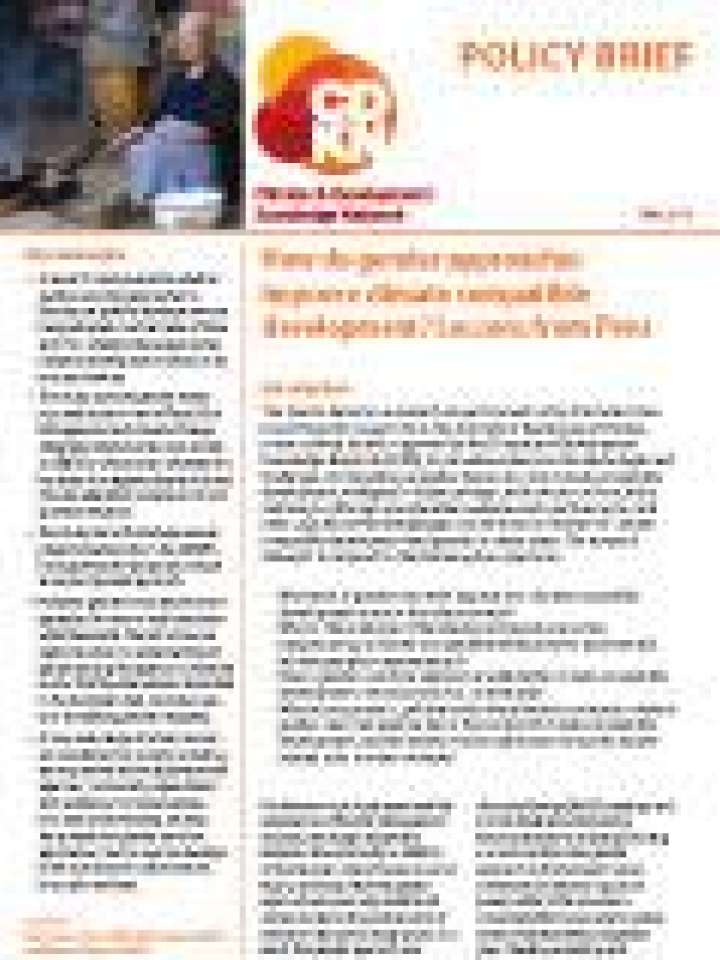How do gender approaches improve climate compatible development? Lessons from Peru
This policy brief evaluates whether gender-sensitive approaches to climate compatible development are being adopted in urban areas of Peru and if so, whether these approaches influence development outcomes for men and women. Although considerable evidence exists pertaining to rural areas, significant kowledge gaps can be found in relation to climate compatible development and gender in urban areas.
The study assessed gender awareness and action in two of Peru’s Risk Management and Climate Change Adaptation Networks (known locally as GRIDES), whose main achievement has been to integrate disaster risk and climate adaptation measures in local government plans.
The research attempts to respond to the following four questions:
- What does a ‘gender-sensitive’ approach to climate compatible development mean in the urban context?
- What is the evidence of the relevance of gender-sensitive programming in climate compatible development to promote and achieve people’s empowerment?
- Does a gender-sensitive approach enable better climate compatible development outcomes and if so, in what way?
- What socioeconomic, political and cultural factors constrain or favour gender-sensitive approaches in the context of climate compatible development, and the ability of men and women to tackle climate related risks in urban contexts?
Key messages
- The study found that where women played a leading role in the GRIDES, local government proposals include an implicit gender approach.
- However, ‘gender’ issues tend to be regarded as ‘for women only’ and somewhat theoretical. The lack of a more explicit position or understanding of gender among the agencies concerned means that the interventions described in the local plans lack concrete measures for tackling gender inequality.
- A very wide range of actions are recommended across society, including among central and local government agencies, civil society organisations and academia, to increase awareness and understanding, develop the potential of gender-sensitive approaches, and so improve development outcomes for urban women, men, girls and boys.
This brief is based on a research project carried out by Practical Action Consulting with support from the Institute of Development Studies, commissioned by and supported by the Climate and Development nowledge Network (CDKN), to provide evidence on the advantages and challenges of integrating a gender dimension into climate compatible development strategies in urban settings, with a focus on Peru, India and Kenya.
Explore further
